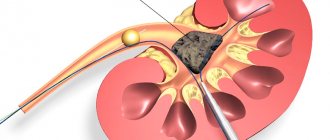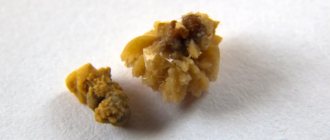Beneficial properties of flax seeds and contraindications - types
- Enveloping
- softening
-anti-inflammatory
- expectorants
-mild laxatives
-painkillers
Flax seeds - contraindications
-The use of flax seeds is contraindicated in acute intestinal dysfunction with intractable diarrhea.
The glycoside linamarin, which is found in flax seeds, forms hydrocyanic acid upon decomposition. Therefore, it is necessary to exercise caution when using flax seeds in medicinal practice.
Treatment with flax seeds, recipes
What are the benefits of flax seeds?
Flax seeds are of great value to the body due to their chemical composition, which includes a large amount of Omega-3 and Omega-6 fatty acids, vitamins, mineral compounds of zinc, iron, calcium, potassium, phosphorus, magnesium, amino acids, lignin and fiber. To varying degrees, all of these components help maintain health as follows:
- prevent the emergence and development of many diseases: diabetes, obesity, ischemia, atherosclerosis, thrombosis, cancer, etc.;
- prevent the destruction of nucleic acids;
- maintain water balance in the body, relieve swelling;
- improve metabolism and blood transport efficiency;
- strengthen the nervous system;
- promote the removal of harmful substances;
- restore healthy structure and appearance to skin and hair.
The medicinal properties of flax seeds include antioxidant, antifungal, anti-inflammatory, antiviral, antibacterial and anticarcinogenic properties.
Despite the fact that eating large quantities of seeds is impossible and harmful, it is worth noting their nutritional value: 100 grams of product contains 450 kcal, and the nutritional mass consists of 20% proteins, 28% carbohydrates and 40% fats .
What does flax seed cure?
Both the seeds themselves and the preparations in which they are used have a wide spectrum of action. It is not true to say that it is thanks to the seeds that a remedy has a therapeutic effect - the preparations contain many other components. However, flax complements the medicinal effect and enhances the effect of the entire combination.
Flaxseed can serve well for those who have acute stomach diseases - peptic ulcers or gastritis. The fact is that the grains of the plant contain many mucous substances. This is easy to see for yourself - seeds immersed in water quickly become covered with a soft mucous membrane.
It also covers the walls of the stomach, strengthening the thinned mucous membrane. Similarly, flaxseeds alleviate the condition of colitis, enteritis, dysentery, and duodenal ulcers. An additional benefit is its astringent effect, which reduces the secretion of gastric juice.
Folk treatment with flax seeds has been practiced by people throughout the history of growing this crop. During this time, medicine discovered and preserved recipes that help prevent and eradicate diseases of a wide variety of nature. As a rule, a decoction is used as a medicine. It is important to remember that only a freshly prepared remedy can ensure maximum effectiveness of herbal medicine.
Flax seeds for weight loss
Among those who are interested in the beneficial properties of flaxseeds, there are many who want to lose weight. A decoction is also used for this, since it promotes the active removal of toxins and ballast deposits, improves metabolism, and improves the functioning of the gastrointestinal tract.
Treatment of ulcers and duodenum with flax seeds
Flaxseed mucus, as already mentioned, helps to alleviate well-being in diseases of the gastrointestinal tract, accompanied by pain due to the presence of wounds or thinning of the mucous membranes.
For conjunctivitis, this liquid can be used externally, it is dropped into the eyes or applied to the affected areas.
Cleansing with flax seeds: how to brew flax seeds to treat the stomach
The medicinal mixture should be drunk once a day before breakfast. A three-week course of use helps get rid of parasites, fecal stones and mucus in the intestines without damaging the natural microflora.
Flax seed for kidney treatment
This amazing product also benefits those who suffer from kidney problems. In this case, the seeds can be used to cleanse the organs and to get rid of stones in them.
Treatment of the pancreas with flax seeds
Despite the fact that the use of flaxseed decoction is quite often practiced for diseases of the pancreas, doctors recommend treating such therapy with caution. Most often this refers to treatment in the acute stage of cholelithiasis and pancreatitis.
Flax decoction envelops the walls of the organ from the inside, which facilitates its work and promotes self-recovery. In addition, the decoction prevents cell division, which slows down tumor processes. The long-lasting effect of the decoction is due to the fact that its mucous component is resistant to acid.
In all presented recipes, 100 ml of jelly is drunk half an hour before meals. The course of treatment is 2 months.
Flax seed for diabetes
Flaxseed jelly helps lower blood sugar levels without serious consequences for the immune system and the entire body.
Flax seed: treatment of parasites
The strong anthelmintic effect of flax seeds allows it to be used to remove parasites from the body.
Flax seeds in the treatment of blood vessels
One of the most famous folk recipes for cleansing and treating blood vessels is a decoction of flaxseed at the rate of 2 tbsp. for 200-250 ml of boiling water. A slightly more effective remedy is a decoction with the addition of calendula flowers.
Radiation sickness: treatment with flax seed decoction
Contraindications
The main reason for prohibiting the use of flaxseeds internally is individual intolerance. By the way, you can earn it if you overdo it in self-medication. In general, professional medical supervision is the main condition for effective treatment.
Gallstones
Gallstones are extremely varied in structure, size, and appearance. Their number can also vary from one to hundreds.
As indicated, gallstones are formed from various components of bile (bilirubin, cholesterol, calcium, etc.). Stones consisting of bilirubin and calcium are usually black or blackish-brownish, dense, their edges may be uneven, they are heavy, and they sink in water. Yellow or brown cholesterol stones are lightweight and float in water, resembling pieces of wax. There are mixed stones - cholesterol-calcium-bilirubin.
The shape of all stones is very different. They resemble either a pea, or a bean, sea pebbles or pigeon eggs. The size of the stones ranges from a pinhead to a chicken egg. The number of stones is related to their size. Large ones are solitary, while small ones are found in large numbers.
That is why the course of gallstone disease to a certain extent depends on the shape, size, composition and number of stones. For example, if there are stones with sharp edges in the gallbladder (usually bilirubin-calcium), then they injure the wall of the gallbladder to a greater extent, which can lead to intensification of the process, more frequent attacks of hepatic colic, deeper destruction of the wall, and its inflammatory changes. Small and medium-sized stones can block the cystic duct and cause dropsy and even suppuration of the gallbladder.
Gallstone disease is also associated with the appearance of stones in the intrahepatic bile ducts, in the hepatic and common bile ducts, the closure of which with a stone causes jaundice and a sharp attack of pain.
When should you not use flax seed to cleanse your kidneys?
Cleansing the kidneys with flaxseed helps remove sand. However, if there are stones in the kidneys, the consequences can be unpredictable! Moving or moving the stone will cause severe pain, and the patient will learn what renal colic is. To prevent this from happening, before cleaning the kidneys - with flax seed or in some other way - it is very important to do an ultrasound to exclude the presence of stones.
—Bronchitis, cough as an enveloping, expectorant and anti-inflammatory agent.
—Pulmonary tuberculosis – strained decoction of seeds with milk.
—Gastritis with high acidity as an enveloping and anti-inflammatory agent.
—For stomach and duodenal ulcers during exacerbation as an enveloping and anti-inflammatory agent.
— Chronic colitis as an enveloping agent, and flaxseed oil is also used for enemas.
- Inflammation of the kidneys and bladder as an enveloping and anti-inflammatory agent.
—Bleukrovii (eat flax seeds).
—In oncological diseases after chemotherapy, a decoction of flax seeds relieves intoxication and improves the blood formula.
—For kidney stones and gall bladder, hemorrhoids, dysentery, constipation, use flax seed oil 1 tablespoon 3-4 times a day.
Flax seeds are used externally
- for boils, carbuncles in the form of poultices as an emollient and analgesic - 2 small bags with whole flax seeds are dipped in boiling water or hot milk for 1 minute and applied hot one by one.
- for rinsing with ulcers and wounds in the mouth, use a decoction of seeds.
— for douching and enemas, a mucous infusion of flax seeds is used.
- flaxseed oil is used to treat burns, eczema, psoriasis, purulent wounds, trophic ulcers.
How to use flax seeds
Pour 1 tablespoon of flax seeds into 1 cup of boiling water, bring to a boil, then shake the mixture for 10-15 minutes, strain through cheesecloth, cool and use as intended. The decoction must be used within 1-2 hours, as the kaon quickly deteriorates. Take the decoction 1-2 glasses 3 times a day 30 minutes before meals.
“Everything is medicine, and everything is poison,” said Avicenna. Therefore, when eating such an unusual product as flax seeds, you should adhere to the consumption norm described in the first question of this section. The limitation is due to the high content of cyanogenic glycosides (for example, thiocyanate).
In addition to poisonous cyanogens, flax seeds contain a compound that produces a strong choleretic effect. Because of this, it is not recommended to indulge in flaxseeds for gastrointestinal diseases such as diarrhea. cholecystitis. colitis. If you have pancreatitis, you cannot take the seeds in their pure form, only prepare a jelly/decoction from them, which has a calming effect on the pancreas.
If the dosage is set incorrectly, flatulence and bloating are possible - you should always start with a small amount of seeds and gradually increase it to the required rate.
Hypersensitivity of the body to any of the components of flaxseeds, as in the case of any medicinal product, is a categorical contraindication for use.
Author of the article: Nina Vladimirovna Sokolova, naturopathic doctor, herbalist
There is no disease that would not recede before flax seeds.
Being a source of omega-3 and omega-6 fatty acids, flax seeds reduce the risk of heart disease, balance hormonal levels (due to the presence of lignans), and actively help fight viruses, fungal diseases and bacterial infections. Flaxseed oil reduces cholesterol in the blood fluid, which prevents the risk of heart attack and lowers blood pressure, improves digestive tract disorders, and is especially effective for constipation.
The beneficial effects of selenium in flax seeds on reducing the risk of cancer (in particular, breast cancer) are being studied. Episodes of treatment for diabetes, HIV infections, hypertension and kidney pathologies have been recorded. The seed improves the condition of the skin, hair, nails, is effective for weight loss, and improves metabolism.
Causes of the disease
Two leading factors play an important role in the development of gallstone disease: the inflammatory process developing in the gallbladder and changes in metabolism (in particular, fat and cholesterol metabolism).
Pathogenic microbes penetrate the gallbladder in an “ascending” or “descending” way and cause an inflammatory process in the mucous membrane of this organ, which leads to the “desquamation” of some part of the mucous membrane (epithelial particles) and the formation of a conglomerate consisting of epithelium, mucus and constituent parts bile (bilirubin, cholesterol, etc.
An important prerequisite for stone formation in the gallbladder is the “thickening” of bile, increasing the concentration of bilirubin in it. Therefore, bilirubin present in bile (in solution) precipitates, often in combination with calcium (forming calcium bilirubinate) in the form of crystals visible to the eye. These, the size of a match head, black, dense formations, are, in fact, newborn stones.
The current increase in the incidence of cholelithiasis is undoubtedly associated with an overload of the diet with fats, or rather, with an unbalanced diet, when the number of calories in food does not correspond to the energy expenditure in the body.
Metabolic disorders are usually associated with certain neuroendocrine formations. For example, with decreased thyroid function, fat metabolism is disrupted, obesity develops, and cholesterol levels in the blood increase. It is known that dyscholia (disturbance in the normal composition of bile) is observed when the liver is exposed to a viral infection (for example, Botkin’s disease), alcohol intoxication, certain occupational hazards, or poor nutrition, which can also contribute to the formation of gallstones.
Mechanical stagnation of bile in the bladder also plays a significant role in their formation. Stagnation of bile is observed in so-called hypo- and atonic dyskinesias, when the activity of the neuromuscular apparatus of the gallbladder is disrupted and muscle tone is significantly reduced.
Stagnation of bile also occurs when a person is in a forced position for a long time, which is associated with certain working conditions, wearing tight clothes, forced retention of stool, and infrequent (1-2 times a day) meals. It should be borne in mind that the hereditary factor obviously plays a role in the formation of gallstones.
Studies have shown that children of parents with cholelithiasis, who had disturbances in the biochemical composition of bile, have a greater tendency to stone formation in the bile ducts than children of healthy parents.
Beneficial properties of flax seeds and contraindications
loading.
The section Beneficial properties of flax seeds and contraindications provides a description of flax, raw materials, chemical composition of flax seeds, beneficial properties and contraindications, the use of flax seeds in folk medicine and for weight loss, recipes for the use of flax seeds for various diseases, recommended by leading herbalists, herbalists, and healers.
Common or seed flax (Linum usitatissimum L.) is a medicinal plant.
Common flax description
Flax or common flax is an annual herbaceous plant. Flax has a straight, bare stem, branched at the top. The flowers are blue and have five petals. The fruit is a capsule that opens with five sutures. The seeds are flattened-ovate, light brown, shiny.
-Enveloping
- softening
- expectorants
-painkillers
Cases of allergic reactions to flax are rare, but still possible. In this situation, taking medications containing it is prohibited. Pathologies of the food tract (diarrhea, diverticulitis, irritable bowel syndrome) are also a contraindication. If you have thyroid disease, asthma, or a tendency to bleed, take the drug with caution.
Pregnancy, lactation, and taking other medications require consultation with a doctor. The drug has a choleretic effect, so patients with urolithiasis should be especially careful when using it. If you have low blood pressure, you should not take flax-based medications. Consumption of more than 50 g of product in one day can cause poisoning.
Fiber and pectin substances bind heavy metals.
Omega-3 has blood thinning properties, which is a good prevention of thrombosis. atherosclerosis and diseases of blood vessels and heart.
Omega-6. a common component in most meat and fatty products of animal origin; if consumed in moderation, it can cause obesity. increased cholesterol levels. heart attack diabetes. Essential omega-3 fatty acids, which flax seeds contain 19 grams per 100 grams of seeds, help neutralize this effect.
Selenium in the seeds restores the deficiency of this microelement in the body, which is often observed in residents of large cities, as well as in those who consume a lot of carbohydrate foods. Selenium protects nucleic acids from destruction, reduces the risk of cancer and cardiovascular diseases.
Potassium is another ingredient in flaxseeds that is vital for humans. With its help, cellular transport is realized; it is necessary for the coordinated functioning of all human organs and systems. With a lack of potassium, heart rhythm disturbances and edema are observed. problems with the kidneys and excretory system.
Similar chapters from other books
The longest stage of cleansing for me was cleansing the kidneys.
The longest stage of cleansing for me was cleansing the kidneys. I am 46 years old, I have been engaged in self-healing for three years, practicing urine therapy and cleansing the body. The longest stage in the comprehensive cleansing for me was cleaning the kidneys - they did not want to cleanse themselves for a very long time. Stones
Chapter 3 Kidney cleansing
Chapter 3 Kidney cleansing • Why is it necessary? • What do we get as a result? • Test. Signs of kidney slagging • Different options for cleaning the kidneys • Cleaning with cranberries or lingonberries • Cleaning with herbal infusion • Cleaning with rosehip infusion • Cleansing with watermelon •
The benefits and harms of flax seeds, contraindications and how to take them?
Flax seeds have virtually no contraindications, but they should be used with caution in case of hypercalcemia or individual intolerance to the components of the seeds.
But since flax seeds are harmless and safe for use, why is the sale of flaxseed oil prohibited in many countries? The fact is that flaxseed oil is the leader in the content of unsaturated fatty acids of the omega-3 group (up to 44% mass fraction, compared to 1% in our usual sunflower oil). These substances are extremely beneficial for health, as they help prevent atherosclerosis and can significantly reduce cholesterol levels, are a structural component of cell membranes and are necessary for the synthesis of prostaglandins.
You can determine the presence of oxidized fats in the oil by its taste - it acquires a bitter taste and a specific smell. Under no circumstances should you drink this oil! It will cause a significant blow to your health!
Optimal storage conditions for linseed oil are in a dark and cool place; linseed oil should be transported in an opaque container (made of tinted glass, ceramics, etc.).
Flaxseeds last longer than oils because their fatty acids are protected by the seed coat, but they also need to be taste-tested before using. Ground seeds with a destroyed shell oxidize as quickly as oil, which is why they need to be ground immediately before use.











